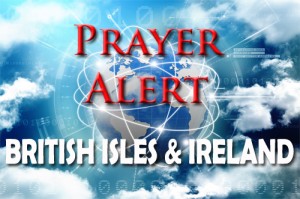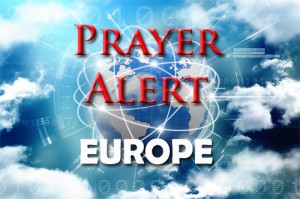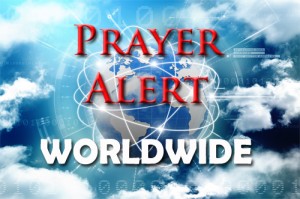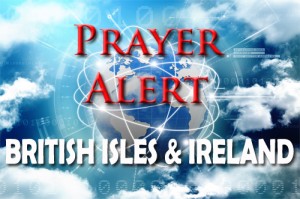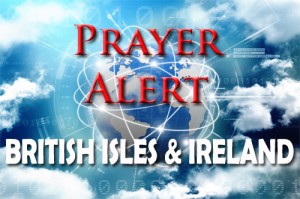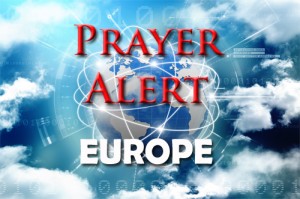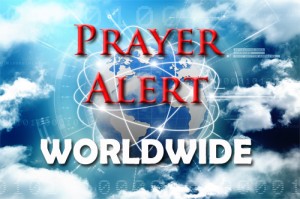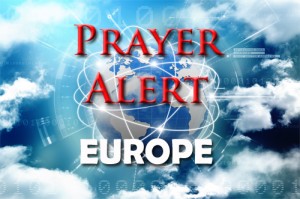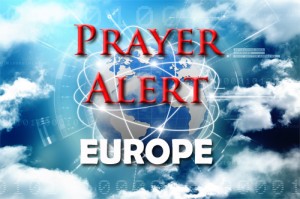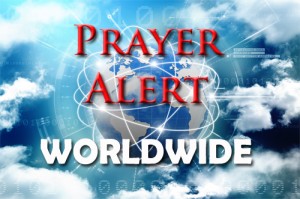Displaying items by tag: Politics
Al Quds Day
Al Quds day (Jerusalem Day in Arabic) was initiated by Iran in 1979 to support Palestinians and oppose Israel’s existence and rights to Jerusalem. Rallies are held globally: England’s march will take place on Sunday 10 June in central London. At last year's march Hezbollah flags were flown, exploiting a hole in UK law, which allows support for Hezbollah's political wing whilst banning its military wing. Hezbollah itself makes no distinction. On 30 May police said they could not stop people flying Hezbollah flags (adorned with machine-guns) on the London march, even though Hezbollah is a recognised anti-Semitic organisation. Those leading the march last year declared publicly, ‘The state of Israel must go’, ‘Everyone knows that Israel and IS are the same’, and ‘Zionist supporters of the Tory Party are responsible for the murder of the people in Grenfell’. See
Slovenia: forming a new government
A new government has to be formed after the anti-immigrant Slovenian Democratic Party (SDS) won 25% of the vote in the general election. The centre-left, anti-establishment party, Marjan Sarec List (LMS) came second with 12.7%. SDS is led by former PM Janez Janša, a vocal supporter of Hungary's nationalist prime minister Viktor Orban. The SDS said the door for talks and coalitions is open to all other parties. It would need to join at least two other parties to gain a majority. Most other parties have ruled out a coalition with Mr Janša because of his extremist views. They could form a centrist coalition. SDS believes money spent on migrants would be better used for Slovenia’s security forces. Mr Janša wants Slovenia to ‘become a country that puts wellbeing and security first’. The banking system, the health sector, and pensions will become key issues on the next government's agenda. Post-election negotiations are expected to be difficult.
Nicaragua: Pope Francis calls for dialogue
Demonstrations against President Ortega’s corruption, his autocratic style, and his control over congress, the courts, the military, and the electoral board started on 19 April and are being met with violence. The church tried to intervene, but called off peace talks after police killed 16+ people on a peaceful march led by victims' mothers. There are now 113 dead. The Pope said, ‘I am united with my brother bishops in Nicaragua and their grief over violence committed by armed groups. The Church is always in favour of dialogue, but for that it requires an active commitment to respect freedom and, above all, life.’ On 2 June residents hid indoors as pro-government snipers shot people in the street. A local church later opened its doors to offer refuge and medical care to 21 individuals who had been detained and reportedly abused by police. Ortega accuses ‘right-wing groups’ of terrorising the country. Seven weeks of violence have made daily life dangerous for a population increasingly in open rebellion against the government. See
NHS resources - 1
A survey of 2,195 GPs in England found that 39% were likely to leave by 2022, and 61% of those over the age of 50 planned to quit within five years. Pressures in general practice have reached an all-time high. Workload has escalated by at least 16% over the last seven years, but the share of the NHS budget general practice receives is less than it was a decade ago. GP numbers are falling, and many GPs are burnt-out. GPs have increasing workloads, too little time to do justice to the job, and a pile of paperwork to meet external bodies’ requirements and increasing patient demands. A representative from hospital trusts said that the figures reflect a gap between what the NHS is asked to deliver and the resources available, following almost a decade of austerity. There are not enough staff, ambulances, community and mental health capacity or hospital beds to cope. Also see the next article.
NHS resources - 2
Many are saying the ‘hostile environment’ policy is damaging the NHS. The current visa rules place a cap on how many non-EU workers can come to the UK, and this ceiling has been hit for six months in a row, preventing more overseas doctors from coming. Many believe the visa rules aren’t working in the best interests of NHS patients, and think that ministers ought to do more to ensure hospitals get adequate numbers of staff. Labour’s shadow health secretary said that we are turning away trained doctors who want to come and work in the UK while the NHS has a workforce crisis with 100,000 posts unfilled. Vacancy rates for nurses and doctors are rising every year. Health trust bosses raised concerns over the visa scheme recently when it emerged that 100 Indian doctors had been denied visas to work in the UK. See also the previous article.
Italy: political/culture change?
Following difficult negotiations after the 4th March election Italy has agreed to have a coalition government. Ministers are drawn from both the anti-establishment Five Star (M5S) and the right-wing League. Their newly chosen minister, Giovanni Tria, is in favour of Italy's continued membership of the single currency. But the populists' conflict with the EU is not entirely over. The M5S and the League have promised both new welfare spending and also tax cuts - which may run into conflict with the EU's spending rules.Army general Vincenzo Santo believes 80% of the flow of Mediterranean migrants is controlled from Italy’s coastlines by its Mafia. With a new government pray that the migration issues will be dealt with. Many are anxious about immigration and afraid of migrants. Italians no longer trust in the EU protection of borders, the principle of Schengen zone and the solidarity principle in general. See
Kenya: apologies between political rivals
In Kenya, politics and ethnic rivalry go hand in hand. On 31 May president Uhuru Kenyatta, opposition leader Raila Odinga, and their deputies exchanged hugs and apologies, cementing their pledge to promote unity after a fractious and bloody election. The unusual scene unfolded at the country's annual national prayer meeting, eight months after Kenyatta's re-election in a poll that divided the nation and left at least 92 dead, according to rights groups. ‘We have said nasty things against each other, and today I ask forgiveness and apologise,’ said Kenyatta. ‘Never again shall a Kenyan die because of an election. On my own behalf and that of all those behind me, I tender my apology’, said Odinga, whose supporters were killed by police during protests.
Belarus: LGBT row with UK embassy
Belarus has accused the UK embassy in Minsk of ‘creating problems’ by flying a rainbow flag for International Day Against Homophobia. The embassy said the banner directed attention to the discrimination that LGBT people encounter constantly. But the interior ministry said the majority of Belarusians ‘support traditional family values’, and ‘such statements are a challenge to these values’. Alexander Lukashenko, who has led Belarus for nearly a quarter-century, believes it is ‘better to be a dictator than gay’. Orthodox Christianity is Belarus’s major religion, with significant Roman Catholic, Protestant and Jewish communities. Homosexuality is not illegal but it is considered taboo: Belarus passed legislation in 2016 banning information that ‘discredits the institution of the family and marriage’.
Sweden: migration and approaching elections
Far-right Sweden Democrats (SD) have seen growing support in polls as campaign discourse focuses on refugees and migrants. With national elections due in September, migration policy is shaping up to be a core campaign issue for parties across the political spectrum. Linda Snecker, for the Left Party, believes the increasing focus on migration is changing the political landscape. While 27,000 people applied for asylum in 2017, immigration minister Helene Fritzon said the country should only grant asylum each year to 14,000 -15,000 applicants. SD claim their party does not oppose immigration, but argue that it ‘must be kept at such a level that it does not pose a threat to national identity or the welfare and security of Sweden’. Many SD members share, spread and sympathise with news and propaganda sites connected to white nationalism.
Iran: sanctions, Syria and uranium
Three world leaders outlined their opinions on Iran. The US secretary of state threatened to impose ‘the strongest sanctions in history’ if Iran doesn’t meet a list of demands, including abandoning involvement in Syria, Yemen, Lebanon and Afghanistan. President Putin said Iran and Hezbollah should leave Syria when the civil war ends; and Israel’s Netanyahu lauded Donald Trump for putting pressure on Iran to stop its intervention in Syria and end its uranium enrichment. An Iranian spokesman told Hezbollah’s Al-Manar TV, ‘No one will extract us from Syria. We will remain and keep supporting Syria so long as it needs our help. No one can force Iran to do anything’. Meanwhile please continue to pray for Nazanin Zaghari-Ratcliffe, a Christian, serving a five-year sentence allegedly for spying and now having new charges made against her. See
